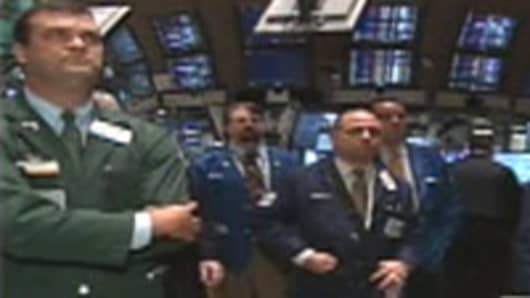They are supposed to be among Wall Street’s most closely guarded secrets: changes in research analysts’ views, up or down, of a company’s prospects. But some of the nation’s biggest brokerage firms appear to be giving a handful of top hedge funds an early peek at these sentiments — allowing them to trade on the information before other investors get the word.
The signals come from questionnaires that analysts answer and submit electronically, either monthly or quarterly, to some of their firms’ largest hedge fund clients. Chief among the questions posed to the analysts are those about possible earnings surprises at companies they follow.
What analysts tell investors about the companies they follow — and when — is central to the concept of a level playing field on Wall Street. When disseminated, analyst downgrades and upgrades can make a stock sink or soar. Getting that information early can be very profitable for traders. As a result, regulatory rules require brokerage firms to restrict the information flow from research departments to prevent the potential for trading ahead of research reports.
Questions about the selective release of analysts’ views came up when the brokerage firms charged with selling Facebook’s initial shares were found to have warned large buyers about some analysts’ doubts regarding the company’s prospects. That irked many small investors who had not received the guidance and sustained losses in their Facebook shares. The Securities and Exchange Commission is investigating these disclosures.
But documents obtained by The New York Times indicate that the hedge fund practice of trawling for analysts’ shifting views is systematic and growing on Wall Street. Questionnaires completed by analysts that can telegraph their thinking are being used by hedge funds run by BlackRock; Marshall Wace, a large British hedge fund company; and Two SigmaInvestments, a United States hedge fund concern.
The funds say they ask only for public information, but in at least four cases, documents from Barclays Global Investors, now a unit of BlackRock, state the goal is to receive nonpublic information. Two documents state that the surveys allow for front-running analyst recommendations.
To the degree that these surveys alert select hedge fund clients to future shifts in researchers’ views or estimates, analyst participation in them may contradict firms’ policies stating that research is distributed to all clients simultaneously.
Analysts at many companies, including Citigroup, CreditSuisse, Deutsche Bank, GoldmanSachs, JPMorgan Chase, Merrill Lynch and UBS, have participated in the programs. The analysts’ answers are fed into the hedge funds’ trading algorithms, determining which stocks to buy or sell.
As one of the largest payers of trading commissions to Wall Street, BlackRock is a client that brokerage firms want to please to keep those commissions flowing. For a period during 2008 and 2009, the firms participating in an expanded survey received cash based on their results.
BlackRock Scientific Active Equity, the money management unit that was part of Barclays Global Investors before it was bought by BlackRock in 2009, has been a leader in these surveys. One of the company’s survey questions, titled “earnings surprise direction,” asks analysts whether a company’s coming profits “are more likely to surprise on the upside or downside.” Another asks: “Do you think the current consensus earnings forecast” for a specified period “will likely move upwards or downwards?”
A more recent question involves takeovers: “How likely is it that the company will be taken over in the next 6 months?”
The BlackRock surveys are careful to ask that analysts supply only those views that they have already stated publicly. But in various confidential documents describing the surveys, company officials state that nonpublic information is what they are after.
“We expect the earnings surprise direction to be able to capture the information not released to the market,” stated a confidential BlackRock memo from November 2008, detailing its analyst surveys of nine brokerage firms in Asia. “The question may give the clue on the direction of the analyst’s future revisions.”


